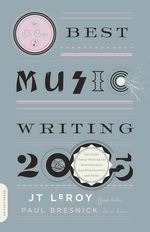Happy Easter Edition
While DC busies itself debating whether homosexuals and their kids should really be out rolling eggs on the White House lawn, I'd like to talk about the man of the hour for a bit. Jesus. Specifically, a Florida State professor's recent attempts to scientifically explain one of Jesus' miracles. I didn't write about this when it first hit the news, because honestly, I think the guy doing this research is a joke, despite his efforts to be an equal opportunity jackass. A self-described "miracle buster," he makes a living by what amounts to telling kids there is no Tooth Fairy. Classy. But I changed my mind and decided to write about it after a recent episode of Wait Wait... Don't Tell Me! Let me explain. One of host Peter Sagal's quiz questions referred to this idea that the Sea of Galilee could have frozen, essentially allowing Jesus to 'walk on water'. After the contestant correctly answered, Sagal took the opportunity to editorialize, "A little hard to believe, don't you think?" But I changed my mind and decided to write about it after a recent episode of Wait Wait... Don't Tell Me! Let me explain. One of host Peter Sagal's quiz questions referred to this idea that the Sea of Galilee could have frozen, essentially allowing Jesus to 'walk on water'. After the contestant correctly answered, Sagal took the opportunity to editorialize, "A little hard to believe, don't you think?"Harder to believe than someone actually walking on water? Really, Peter? At least the scientific option is plausible, however unlikely. But as absurd as it seems, is it really more reasonable than the miraculous alternative? So why is Sagal, a presumably intelligent and educated man, easily able to make such an apparently unreasonable statement? If the person in question was not Jesus, the scientific answer would be the clear winner. But since the question deals with a religious figure that holds extraordinarily deep meaning, everything changes. The foundation of Sagal's value judgments shifted from truths of reason or science to truths of religion. This creates a serious problem with the scientist's intent to explain the unexplainable. Science and religion each seek to interpret the world, doing so in very different but equally valid ways. However, each is based on its own unique truths, and it is irresponsible to debate them as if they oppose each other. Various systems of geometry each are based on axioms that at times contradict each other. In Euclidean geometry, given a line and a point, there is only one parallel line that runs through that point. In hyperbolic geometry, there are infinite parallel lines that run through the point. Parallel lines don't even exist in elliptical geometry.  Because of this, a postulate that is true in one system may not be in another. But such a postulate isn't worthless. Its worth depends on its usefulness, and each system can be used to solve problems and create order in the world. For instance, you couldn't build a house without Euclidean geometry, but the development of non-Euclidean geometries is central to modern astrophysics. We don't reject a useful mathematical system just because another contradicts it. Similarly, the idea that scientific and religious truths must be reconciled creates a false dilemma where people feel forced to choose between one or the other. Because of this, a postulate that is true in one system may not be in another. But such a postulate isn't worthless. Its worth depends on its usefulness, and each system can be used to solve problems and create order in the world. For instance, you couldn't build a house without Euclidean geometry, but the development of non-Euclidean geometries is central to modern astrophysics. We don't reject a useful mathematical system just because another contradicts it. Similarly, the idea that scientific and religious truths must be reconciled creates a false dilemma where people feel forced to choose between one or the other.Scientific and religious truths that are contradictory should not have to compete with each other. They are each based on their own distinct axioms and the end results are equally valuable. They provide an interpretation of the world and offer a direction in which to move. Scientific inquiry does not lessen the weight of religious canon, nor does faith negate scientific discovery. The tension that is caused by this false dilemma is destructive to both science and religion. In Christianity, the miracle of Christ's resurrection forms the core of the faith. Miraculous events or ideas similarly underpin other religions. Working to explain how these miracles could have happened mistakes religious belief for some sort of suspended disbelief. The faithful do not begrudgingly accept miracles in spite of evidence that they could not have happened. That they are incredible is precisely what gives miracles their power and meaning. Miracles are not meant to be investigated or deconstructed, and when they are the reaction is hostile. Such hostility is at the root of divisive controversies, most recently seen in the debate over intelligent design. Attempts to integrate theology and science introduce an element that reduces the usefulness of the scientific method. On the other hand, using science to probe theological questions reduces the usefulness and meaning of religion. It is understandable that people react so vehemently to attempts at either. The professor who authored the research on Jesus' watery miracle states, "We leave to others the question of whether or not our research explains the biblical account." This statement not only refuses responsibility, it belies the worst part of such research - not the sins it commits, but the intention it commits them with. Both arrogant and disdainful, it fans flames in pursuit of noteriety, amounting to little more than scientific demagogy. What's more, the results are doomed to irrelevance from the beginning. Who cares if/how Jesus walked on water? The Christian faith is not going to suddenly adopt a "good to know..." attitude, adjusting its canon accordingly. The only consistent results of this line of questioning are outrage among the faithful, inevitable smugness from non-believers, and a lot of meaningless rhetorical ping-pong in the media. Hardly a useful scientific discovery. |
















